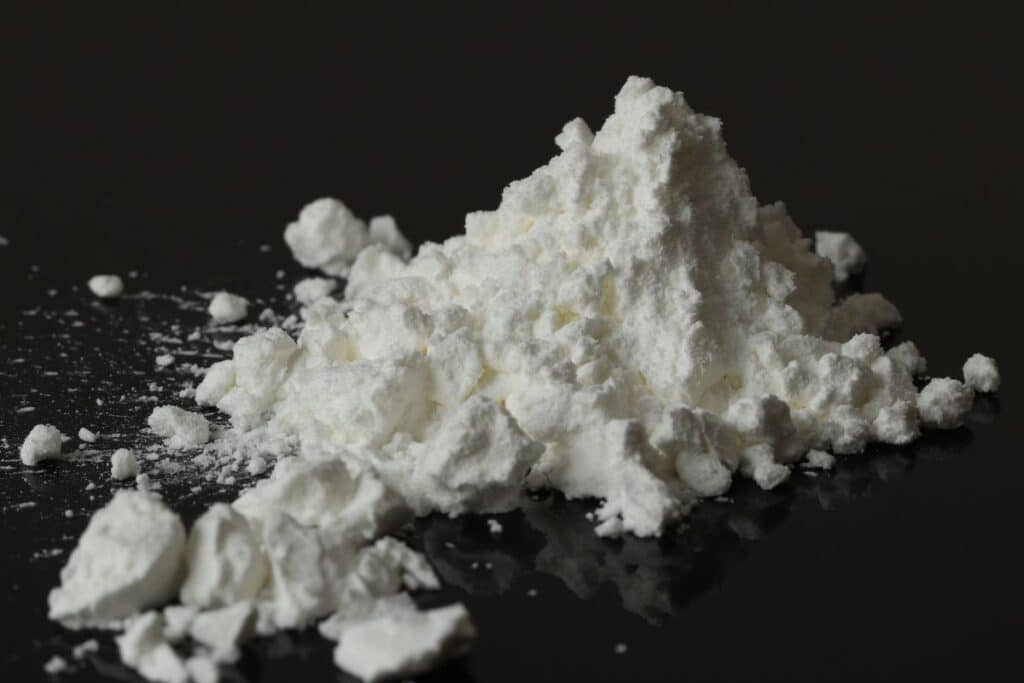Quick summary: Yes, cornstarch can last indefinitely if stored properly and has no specific expiration date. While cornstarch itself doesn’t spoil, it can be affected by moisture, mold growth, or pests, so it’s important to store it in a cool, dry place and seal it tightly after opening.
You found an open bag of cornstarch in the pantry, and you don’t know if it had lost its potency or not? Will it thicken the liquid as much as fresh starch? We bring you the answers.
Cornstarch is one of those foods you come across while searching the kitchen cabinet, and it almost regularly happens that the expiration date has already expired. Since it is rarely used, even in small quantities, it will likely expire sooner than you will use up the packaging to the end.
The logical question is whether corn kernels starch can expire and lose its primary role, which is to thicken whatever you are cooking. We will cheer you up right at the beginning. Cornstarch has no expiration date. However, certain circumstances can impair its stability and cause deterioration of rhis thickening agent. Details are given below.
How Long Does Cornstarch Last?
Cornstarch, by its nature, like some other corn products, can last indefinitely. It is only important not to allow external influences to spoil its endurance.
Unopened cornstarch
As long as it is well-sealed, cornstarch can really last forever. Be careful only if you bought starch in paper packaging. In this case, moisture can penetrate inside and spoil the starch even though you have not opened it yet. But if the storage conditions are okay, feel free to ignore the expiration date written on the packaging.
Opened cornstarch shelf life
Many people think that after opening, cornstarch starts to spoil. But this is not true. There is nothing in starch that would cause spoilage over time. What bothers him are only external negative influences such as moisture or insects. So as long as you have a well-sealed package or keep the starch in a sealed jar, you can use it indefinitely.
Can Cornstarch Go Bad?
The answer to the question of whether cornstarch spoils is twofold. Basically, if there are no external negative influences, the starch will never go bad. However, it is quite sensitive to negative conditions such as humidity. Here are some signs that the starch is spoiled.
Sign 1: Moisture
Moisture is not good at all because it favors the development of mold. If you happen to spill a small amount of water into the fine powder, you can remove the lumps by sieving. But if the cornstarch container stays in humid conditions for a while, you’d better throw it all in the trash.
Sign 2: Mold is present
The direct consequence of humidity after a while will be mold. You can notice it as a cobweb stretching through starch. Remember that the mold does not necessarily have to be a different color, so there are enough small threads that you will notice to conclude that the product should be in the trash.
Sign 3: Pests arrived
Ultimately, as is the case with flour, kitchen pests and insects can also be present in starch. In that case, everything has to go to the trash because small animals certainly contaminate the product they are in and impair a very long shelf life.
What Is The Best Way To Store Cornstarch?
Cornstarch is actually easy to store. There are only a few key conditions you need to provide for it, and it will be perfectly fine for a long time. Room temperature or slightly colder in the pantry is perfect, but there is no need to keep it in the fridge. This will not help the durability in any way. Here are the basic instructions for your thickening agent to be stored properly.
Tip 1: Avoid moisture
We cannot emphasize this enough. Moisture should never be present. A dry place will be all that starch requires. Also, avoid keeping a bag of starch close while cooking so that drops do not accidentally end up in the package.
Tip 2: Seal well
It is very important to close the bag well after opening it so that small insects do not have the opportunity to crawl into the starch. Original paper packaging may not be the best solution, so it would be better to pour the starch into an airtight container or a jar with a lid. Some manufacturers have made things easier for their customers by packing the starch in plastic bags with a zipper. Such packaging will be quite fine for long-term storage.
FAQs
How can you tell if cornstarch is bad?
You can tell if cornstarch is bad by checking for any clumps, an unusual odor, or changes in color. Fresh cornstarch should be a uniform, fine powder without any signs of moisture or discoloration.
Is it okay to use expired cornstarch?
Yes, it is perfectly fine to use cornstarch even after the expiration date. It is only important that it is not affected by moisture or contaminated with insects. In any other case, feel free to use it no matter when it has expired or how long ago you opened the package.
Can old cornstarch make you sick?
No, old cornstarch that has been stored properly is unlikely to make you sick, but its quality and thickening ability might be compromised.
Will old cornstarch lose its potency?
Yes, old cornstarch can lose its thickening potency over time, resulting in reduced effectiveness in recipes. It’s important to store cornstarch in a cool, dry place and use it within its recommended shelf life for optimal results.
Can bacteria grow in cornstarch?
No, bacteria are unlikely to grow in dry cornstarch due to its low moisture content.
Conclusion
Cornstarch is one of the foods that stay in our kitchen cupboard for a long time, and luckily it can last indefinitely. So you can, without remorse, keep one package in a pantry for years and use it whenever you need a teaspoon of thickener.
It is important to remember that this is a dry product and loves dry conditions. Keep it in a suitable package protected from moisture or insects. And don’t worry, starch won’t lose effectiveness no matter how many years have passed since its opening.
If you had a vision to freeze cornstarch to prolong its shelf life, it’s not a good idea. If stored properly, it has an indefinite shelf life, so freezing is unnecessary. It can only cause moisture presence and create lumpy cornstarch. A cool dark place will be sufficient.
In the rare event that your product is unusable or you run out of it, check these cornstarch alternatives to use instead.
*image by homeworlds/depositphotos









